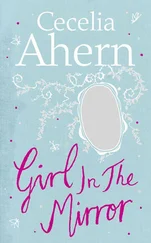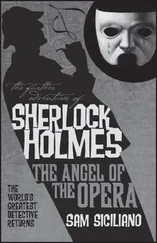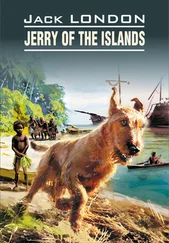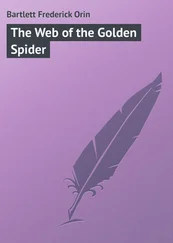Ahern, Jerry - The Web
Здесь есть возможность читать онлайн «Ahern, Jerry - The Web» весь текст электронной книги совершенно бесплатно (целиком полную версию без сокращений). В некоторых случаях можно слушать аудио, скачать через торрент в формате fb2 и присутствует краткое содержание. Жанр: Старинная литература, на английском языке. Описание произведения, (предисловие) а так же отзывы посетителей доступны на портале библиотеки ЛибКат.
- Название:The Web
- Автор:
- Жанр:
- Год:неизвестен
- ISBN:нет данных
- Рейтинг книги:4 / 5. Голосов: 1
-
Избранное:Добавить в избранное
- Отзывы:
-
Ваша оценка:
- 80
- 1
- 2
- 3
- 4
- 5
The Web: краткое содержание, описание и аннотация
Предлагаем к чтению аннотацию, описание, краткое содержание или предисловие (зависит от того, что написал сам автор книги «The Web»). Если вы не нашли необходимую информацию о книге — напишите в комментариях, мы постараемся отыскать её.
The Web — читать онлайн бесплатно полную книгу (весь текст) целиком
Ниже представлен текст книги, разбитый по страницам. Система сохранения места последней прочитанной страницы, позволяет с удобством читать онлайн бесплатно книгу «The Web», без необходимости каждый раз заново искать на чём Вы остановились. Поставьте закладку, и сможете в любой момент перейти на страницу, на которой закончили чтение.
Интервал:
Закладка:
For an instant only, Rourke questioned his own sanity, then dismissed the idea.
He was sane; it was what he saw that wasn't sane.
He took out one of his dark tobacco cigars, rolling it across his mouth between his teeth to the left corner, then letting the Bushnell binoculars dangle down from the strap around his neck. He found his lighter, and
flicking the Zippo, touched the tip of the cigar nearly into the flame.
Drawing, he felt the smoke in his lungs as he inhaled.
He and Natalia and Paul had often talked about it—a world gone mad; but beneath him now, on the valley floor, was a world that hadn't changed. Was that madness? He closed his eyes, listening to the music. . . .
Comfortable with his leather jacket open^-he would have worn it now if he had been hot because it concealed the twin stainless Detonics .s—he rode the Harley into the town, his Python and the hip holster hidden in his pack, the CAR-still wrapped in the blanket. At least it would take a reasonably knowledgeable curious person to determine that it was a gun.
He could hear the music more clearly now as he passed a small school; the facility would handle perhaps three hundred students, he decided. From the high ground inside the lip of the valley, he had seen most of the town in relief against the valley floor, but the details had been lost. Now he could see it more clearly. No evidence of looting, bombing, fire,s—nothing that showed there had ever been a war. The Night of the War hadn't touched this place.
He felt like Hilton's very British hero, entering Shangri-La and leaving the storm behind him.
"The storm," he whispered to himself. Both literally and figuratively, a storm.
He stopped his Harley-Davidson Low Rider for a stop sign; a police car was across from him at the other side of the four-way stop.
Rourke ran his fingers through his hair, then gave the cop a wave and a nod as he started. The police prowl car moved slowly, the policeman lighting his dome light,
looking but saying nothing as Rourke passed the vehicle.
Rourke chewed down on the burned out stub of his cigar now. Reaching the end of a storybook residential street, he turned left after slowing for a yield sign, a public library on his right as he started toward the lights of the square. A young girl wearing a dress sat on the steps of the library building, with a boy of the same age sitting beside her, the two talking.
The boy looked up, and Rourke gave him a nod, driving on. He passed the post office; the street angled slightly toward the town square.
He stopped the Harley beside the curb, staring at what he saw. It was just as he'd seen it from above—a band flaying, some younger people dancing, clogging or step-dancing, children running and playing, some tugging on their mothers—perhaps two hundred people in all around the square.
He turned off the key for the Harley. He couldn't help himself as he sat there, listening to the music, but hearing different music—a song he and Sarah had always called their own song, danced to so many times. In the faces of the strange children, Rourke saw the faces of his own. What he couldn't stop, what he felt—tears—a world gone.
Had Sarah seen him, he smiled, she would have thought he was almost human.
. . .
The blue-grass band had stopped, and a record player was humming through the loudspeakers; there was the scratching sound of a needle against plastic, then a country song, and through a momentary niche in the wall of humanity surrounding the center of the square he saw more children—girls in green-and-white plaid dresses with short skirts and petticoats that made the skirts stand
away from their legs, the oldest of the girls perhaps twelve, the youngest looking to be Annie's age—five or so.
Boys in green slacks and white shirts and green bow ties—only a few boys (hough—stood beside them, all in a rank. They started dancing; clogging, it was called.
Rourke srnelled something, then turned and looked to his right. A gleaming truck, the kind that would come to factories to bring coffee and doughnuts and hamburgers, was parked at the edge of the square.
He saw a sign above the open side that formed a counter—the sign read, COKE.
Rourke walked toward the truck. A little girl passed him, coming from the truck, a half-eaten hot dog in her right hand, yellow mustard around her mouth and dribbling down her chin.
Rourke automatically felt his pockets. He still carried his money clip—but was there anything in it? "Yes," he murmured. Something just hadn't made him give away or throw away money. He pulled out a ten and walked over to the truck.
"What]] ya have, mister?''''
"Ahh—two hot dogs and a Coke. Make it three hot dogs."
"You new in town, ain't ya? Related to anyone 'round here?"
"What's the occasion?" Rourke asked, something making him evade the question. He jerked his thumb toward the town square behind him.
"It's the Fourth of July, mister. Ain't you got no calendar?"
"I—I've been camping—up in the mountains. Kind of lost track of time."
"I reckon you have." The man smiled, handing Rourke the three hot dogs in a small white cardboard box. Rourke handed him the ten-dollar bill and took the Coke, then started away.
"Hey!"
Rourke turned around.
"You forgot your change!"
"Keep it," Rourke told him. "Maybe I'll wan! another hot dog later."
Rourke turned and spat his cigar butt into a trash can near him. He walked across the square a short way, finding a tree and leaning against it, listening to the music, seeing the children clog. He took a bite from the hot dog nearest him in the box, the Coke set down beside Jiim on the ground. It wasn't near the Fourth of July.
The man who had sold him the hot dogs wasn't from here, either—he had said "you" not "y'all" and that went with the territory. Rourke had made the speech pattern as midwest em.
Maybe it was the Russians—something that would be a trap. But for whom?
The town, the dancing, the Fourth of July. If he wasn't crazy, all of them were.
He wasn't crazy, he reminded himself, feeling the comfort of his guns under his jacket as he nudged his upper arms against his body. "I'm not crazy," he verbalized. The hot dog had tasted good and he started to eat the second one, dismissing any worry it was drugged. The little girl was dancing around, helping the doggers; the only thing apparently wrong with her being terminal mustard stains. . . .
Rourke sipped at his Coke—it was real Coca-Cola. He hadn't had any since—He worked along the perimeter of the crowd, watching the faces, the genuine smiles. He nudged against a man and the man turned, smiled,
and said, "Hey!"
It was the universal southern greeting that Rourke had learned long ago as a transplanted northerner.
"Hi." Rourke smiled, as the man turned away to watch the clogging. This was a second group of doggers, dressed the same but in red and white rather than green and white. The green-and white-clad girls and boys stood at the edge of the crowd now, watching the others.
Rourke saw a face; it was the only face not smiling. It looked promising, he thought, and gravitated toward the woman belonging to it. \par As he neared the woman," the clogging stopped— abruptly—and an announcer, a fat man wearing a red-and white-checkered cowboy shirt and a straw cowboy hat, said through the microphone, "Let's give these little folks a big, big hand!" Rourke held his cup in his teeth a moment and applauded, then kept moving toward the woman with the unsmiling face.
Slower country music started to play and the crowd started splitting up.
Rourke cut easily through the wave of people now, some of them gravitating toward the edge of the square, some pairing off and dancing to the music.
Читать дальшеИнтервал:
Закладка:
Похожие книги на «The Web»
Представляем Вашему вниманию похожие книги на «The Web» списком для выбора. Мы отобрали схожую по названию и смыслу литературу в надежде предоставить читателям больше вариантов отыскать новые, интересные, ещё непрочитанные произведения.
Обсуждение, отзывы о книге «The Web» и просто собственные мнения читателей. Оставьте ваши комментарии, напишите, что Вы думаете о произведении, его смысле или главных героях. Укажите что конкретно понравилось, а что нет, и почему Вы так считаете.







